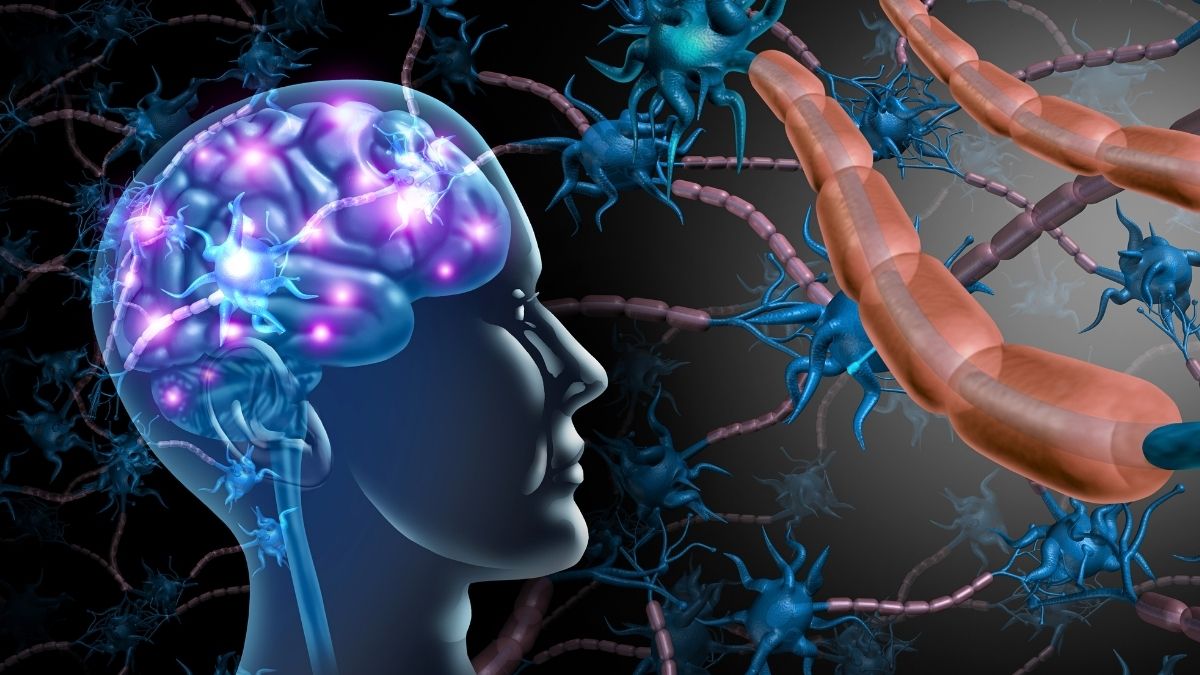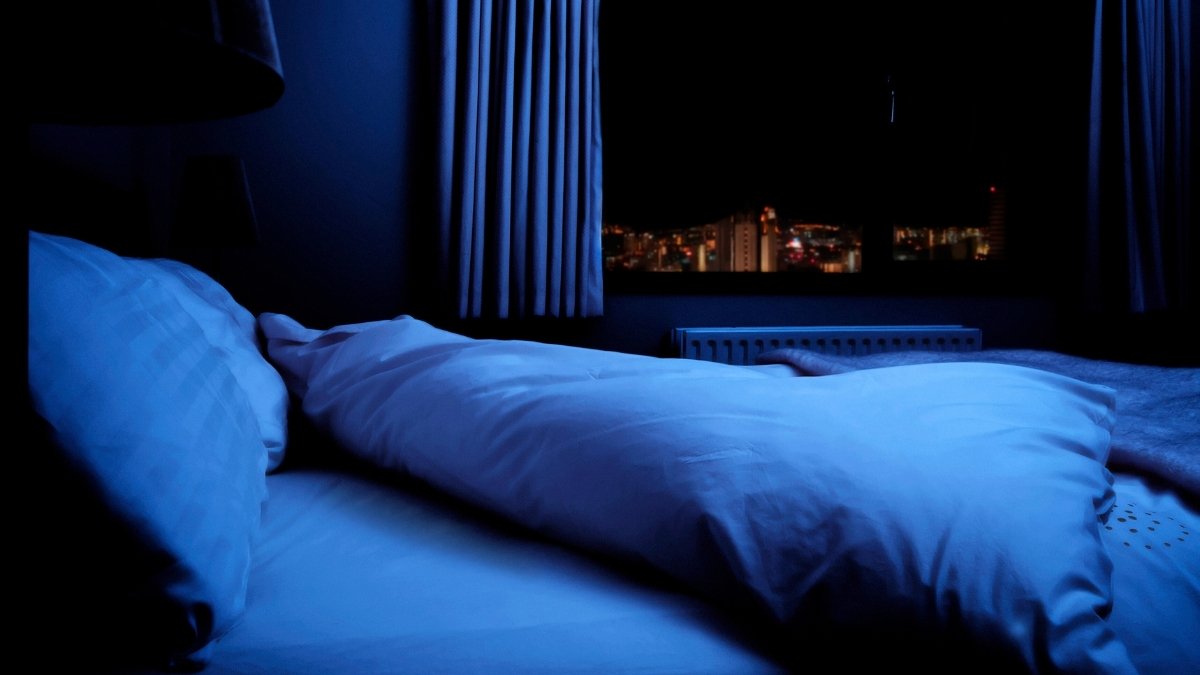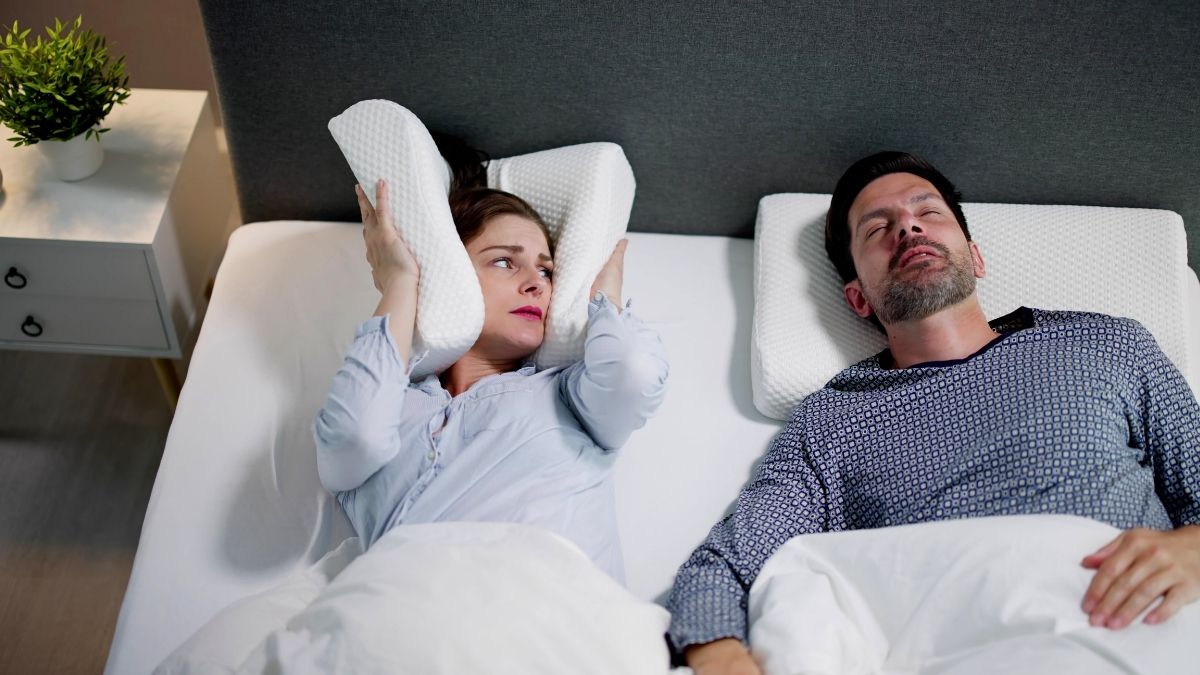Why Your Sleep Quality in Your 40s Predicts Your Alzheimer’s Risk in Your 70s

While you’re losing sleep over work deadlines and family responsibilities in your 40s, your brain is quietly accumulating changes that could determine whether you’ll remember your grandchildren’s names in your 70s.
Most people treat bad sleep like a minor annoyance. A restless night here, insomnia there—no big deal, right? Wrong. The connection between sleep quality and alzheimer’s risk isn’t just theory anymore. Scientists have proven that your midlife sleep patterns directly predict cognitive decline 30 years later.
You’re in your peak earning years. You’re managing teenagers or aging parents. You’re dealing with hormonal shifts. Sleep feels like the one thing you can sacrifice. But every night of poor sleep is like skipping a critical maintenance appointment for your brain.

Here’s what you’ll learn in this article: how sleep removes toxic proteins that cause Alzheimer’s, which five sleep problems are most dangerous, how to assess your personal risk right now, and seven strategies you can start tonight to protect your brain.
The Science Behind Sleep and Brain Cleaning
Every night while you sleep, your brain performs a maintenance operation as precise as surgery. Most people have no idea this is happening.
Your brain has a cleaning system called the glymphatic system. Think of it as a nighttime garbage truck that only runs when you’re in deep sleep. This system removes toxic waste proteins, including beta-amyloid—the sticky substance that builds up in Alzheimer’s disease.

Here’s what makes this critical: beta-amyloid is like toxic sludge that clogs your brain’s circuits. When you sleep deeply, cerebrospinal fluid washes through your brain and flushes this waste out. Miss that deep sleep, and the sludge stays.
A 2023 study tracked people for 30 years and found something alarming. Those with poor sleep in their 40s had 2-3 times more amyloid buildup in their 70s. That’s three decades of toxic proteins accumulating night after night.

Research from UC Berkeley and Washington University School of Medicine confirms this connection between poor sleep cognitive decline and brain health. One bad night doesn’t doom you. But years of disrupted sleep compound like debt with interest.
The damage is silent and invisible until it’s often too late. Your brain can only protect itself if you give it the deep sleep it needs to clean house.
Not all sleep problems create equal risk. Five specific patterns are particularly dangerous for your future cognitive health.
The 5 Sleep Problems That Increase Your Risk Most
If poor sleep is dangerous, these five patterns are the worst offenders. Here’s how to spot them in your own life.
1. Sleep Apnea: Your Brain Starves for Oxygen
You stop breathing dozens or hundreds of times each night. Your oxygen drops. Your brain suffers. The sleep apnea dementia risk is severe—sufferers develop Alzheimer’s 10 years earlier on average.

Warning signs: Loud snoring, choking sounds at night, waking up gasping, extreme daytime tiredness, morning headaches.
2. Chronic Insomnia: Your Brain Never Gets Its Cleaning Time
You can’t fall asleep or stay asleep most nights. Week after week, month after month. People sleeping less than 6 hours nightly in midlife have 30% higher dementia risk. Your brain’s waste removal system barely turns on.

Warning signs: Taking 30+ minutes to fall asleep regularly, waking at 3 AM and can’t get back to sleep, feeling wired and tired at the same time.
3. Fragmented Sleep: Waking Up Destroys the Deep Sleep You Need
You might sleep 8 hours total, but you wake up 10-15 times. Sleep fragmentation is just as bad as sleeping 5 hours straight. Each time you wake, your sleep cycle resets before reaching the deep cleaning phase.

Warning signs: Bathroom trips 3+ times nightly, partner’s movements wake you, pets disturb your sleep, checking phone during the night.
4. Insufficient Deep Sleep: Missing the Critical Brain-Cleaning Stage
You need 13-23% of your total sleep in deep sleep for proper brain maintenance. Most adults in their 40s get only 5-10%. This is when your brain removes toxic proteins. Skip this stage repeatedly, and those proteins accumulate.

Warning signs: Never feeling refreshed despite 7-8 hours in bed, fitness tracker shows minimal deep sleep, alcohol or medications affecting sleep quality.
5. Irregular Sleep Schedules: Confusing Your Brain’s Internal Clock
Your bedtime shifts 2-3 hours between weekdays and weekends. Your brain’s cleaning system runs on your circadian rhythm. Irregular midlife sleep patterns break this rhythm completely. Your brain never knows when to start its maintenance work.

Warning signs: Sleeping till noon on weekends, bedtime varies by more than 1 hour nightly, shift work, frequent travel across time zones.
Meet Tom, 45, a sales manager. He sleeps 7 hours but his schedule is chaotic—10 PM Monday, 1 AM Tuesday, 11 PM Wednesday. He wakes up 6-8 times nightly to check his phone. His fitness tracker shows only 8% deep sleep. Tom has four of these five problems. His brain’s cleaning crew barely shows up for work
7 Evidence-Based Strategies to Protect Your Brain Tonight
The connection between sleep quality and alzheimer’s risk is clear. Here’s exactly what to do about it, starting today.
Strategy #1: Sleep Between 10 PM and 7 AM
Your brain’s cleaning system works best between 10 PM and 2 AM. Going to bed after midnight cuts your deep sleep significantly, even if you sleep 8 hours total.

Do this: Set a 9:30 PM alarm as your “start getting ready for bed” signal. Avoid this: Staying up past 11 PM regularly, even on weekends.
Strategy #2: Turn Your Bedroom Into a Cave
Keep your room at 65-68°F. This temperature range increases deep sleep and helps improve deep sleep quality. Darkness matters too—even small lights disrupt your brain’s cleaning cycle.

Do this: Use blackout curtains, cover all LED lights, set thermostat to 67°F. Avoid this: Sleeping with TV on, phone charging near bed, temperatures above 70°F.
Strategy #3: Treat Sleep Apnea Like the Emergency It Is
CPAP therapy reduces dementia risk by up to 50% when used consistently. If you snore loudly or gasp at night, get tested immediately. Dental devices and positional therapy also work for mild cases.

Do this: Schedule a sleep study this month if you have warning signs. Avoid this: Ignoring snoring or waiting “to see if it gets better.”
Strategy #4: Start Your Wind-Down 90 Minutes Before Bed
Your brain needs time to shift gears. A structured routine signals your body that sleep is coming. This directly impacts your midlife sleep patterns.

Sample routine:
- 9:00 PM: Dim all lights, stop all screens
- 9:30 PM: Warm shower or bath
- 9:45 PM: Light stretching or reading
- 10:00 PM: Lights out
Avoid this: Working, watching intense TV, or scrolling social media past 9 PM.
Strategy #5: Exercise at 2-6 PM for Maximum Deep Sleep
Exercise 4-6 hours before bed improves deep sleep by 15-20%. Morning workouts help too, but afternoon timing gives the best results. Weight training and cardio both work.

Do this: Schedule 30-minute workouts between 2-6 PM at least 4 days weekly. Avoid this: Intense exercise after 7 PM—it raises cortisol when you need it dropping.
Strategy #6: Cut Evening Cortisol Before It Cuts Your Sleep
High stress hormones at night destroy sleep architecture. Even one stressful email at 9 PM can reduce your deep sleep by 25%.

Do this: No work emails after 7 PM, practice 10 minutes of breathing exercises at 8 PM. Avoid this: Checking work messages in bed, watching news before sleep, arguments after dinner.
Strategy #7: Try Magnesium Glycinate, 200-400mg
Magnesium glycinate helps you fall asleep faster and stay in deep sleep longer. Take it 1 hour before bed. Melatonin (0.5-3mg) can also help reset your sleep schedule.

Important: Talk to your doctor first, especially if you take other medications. Avoid this: Taking random supplements without checking interactions or quality.
Start with strategies 1, 2, and 4 tonight. Add the others over the next two weeks. Small changes compound over decades—exactly how you protect your brain.
Final Thoughts:
Your sleep in your 40s isn’t just about tomorrow’s energy. It’s writing the story of your brain health in your 70s. The research proves that midlife sleep patterns and Alzheimer’s risk are connected.
Here’s the good news: unlike your genetics, you control your sleep. Every improvement you make tonight protects your brain for decades.

Start with one change right now. Set a consistent bedtime. Schedule that sleep study you’ve been avoiding. Cool your bedroom to 67°F. Small changes compound over 30 years.
Protecting your brain health through improved sleep quality and alzheimer’s risk reduction starts now—not when symptoms appear. Your 70-year-old self is depending on what your 40-year-old self does tonight.






